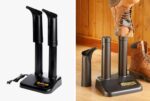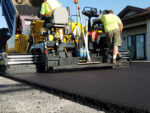Especially designed work boots are a must if you work in a hazardous environment. They not only keep your feet comfortable, but also protected from any injury or shock or even adverse environmental conditions.
They are a great investment and people tend to hold on to them as long as they can. After all, they are also a bit pinch for your pocket.
But as nothing is permanent, so are the boots. They go through wear and tear and tend to lose their properties during the span.
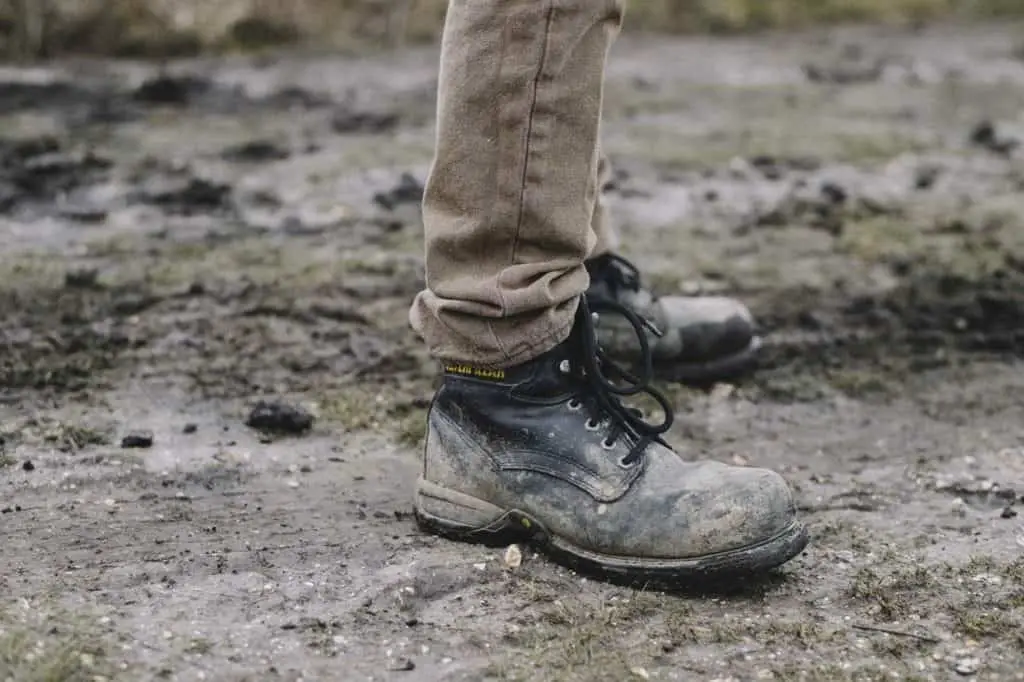
However, a good boot with a good material like leather should last you not less than a year. That said, proper maintenance and care of the boots will increase the life span of the leather boots.
Types of boots and their life span
| Boot name | Type of work | Daily wear span | Life span |
|---|---|---|---|
| Leather boots | Construction | 2.5 miles Approx | 6 months |
| Cowboy boots | Construction | 4 miles | 5 to 10 years |
| Suede boots | Engineer | 2 miles Approx | 4 to 5 months |
| Redwing boots | Construction | 2.5 miles | 5 to 20 years |
| Hunter boots | Brick laying | 3 miles | 9 years |
| Snow boots | Skiing | 1.5 miles | 40-100 days |
| Redwing boots | Construction | 2 miles | 4 years |
| Thorogood boots | Construction | 2.5 miles | 4 years |
| Timberland boots | Construction | 2 miles | 3-4 years |
| Hiking boots | Hiking, trekking | 3 miles | 600-700 miles |
| Nubuck boots | Surveyor | 2 miles | |
| Ariat boots | Construction | 3 miles | 10 years |
| Danner boots | Traffic | 1.5 miles | 1 year warranty |
| Logger boots | Iron worker | 2.5 miles | 5 to 10 years |
To your relief, there are certain signs that will indicate you that it’s time to replace your work boots. The damages might not be seen initially, but you will definitely start to feel them as days past.
And…
In this article, I am going to tell you about all the signs that indicate the time for replacing those work boots:
Signs That Show it’s Time to Replace Your Work Boots
1.) Damaged or worn out outsoles:
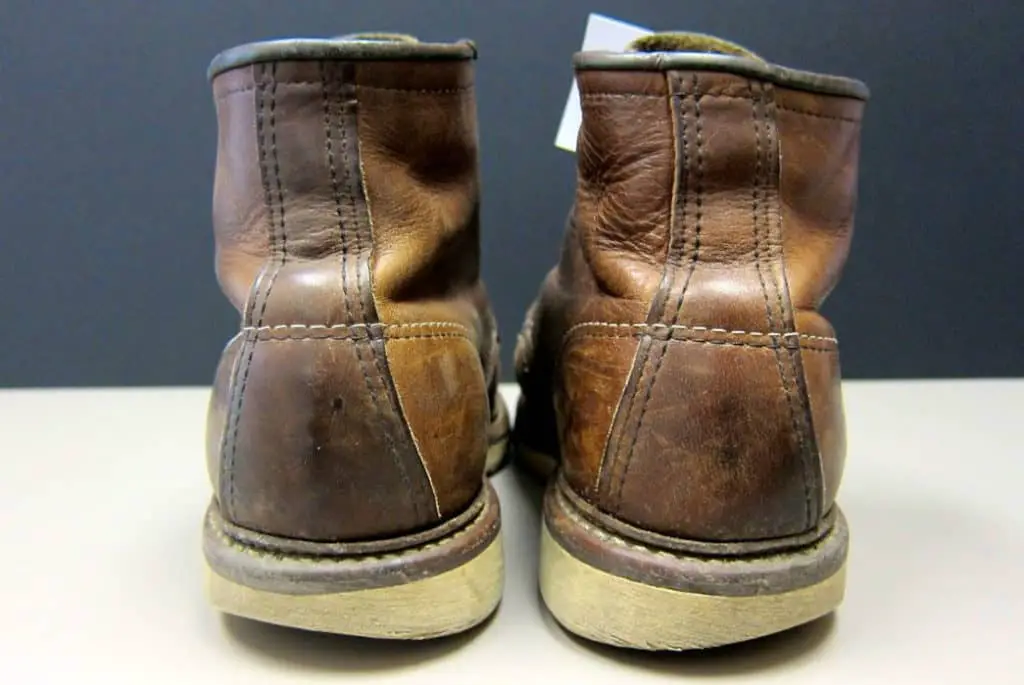
Outsole is the only part which comes in direct contact with the rough terrain and gets rubbed against it. So, this is part which gets damaged first.
You will notice that lint like structures have appeared on the rubber soles or they might have cracks or holes in them as well. These signs will indicate that it’s time to change your boots or replace the outsole at least.
2.) Pressed insoles:
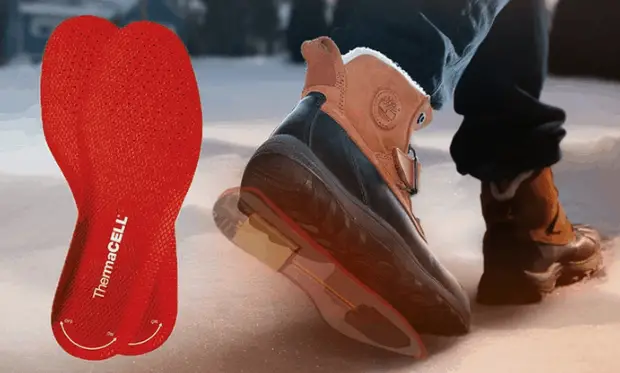
Insoles are designed for providing cushioning to the feet and with this cushioning, you feel comfortable in the boots all day long. When the insoles are damaged, there is not much cushioning effect left inside your boots and your feet start to hurt while walking the terrain.
3.) The flexibility test:
Little flexibility is required in every boot. But, there comes a time when the boots become too much flexible and then it’s time to change it.
To test the flexibility, you need to hang the boots through the laces and try to touch the tip of the boot to its heel. If the tip touches the heel easily that is bends completely, then probably it’s time to change it.
4.) Damaged midsoles:
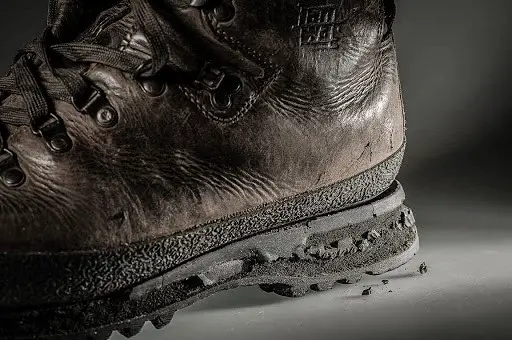
The midsoles might tend to lose their shape and become wrinkled over time. They won’t offer the cushioning it used to give at the time of buying. This is the time when you will also notice the decrease in height of the shoe when you wear them.
5.) The upper getting separated:
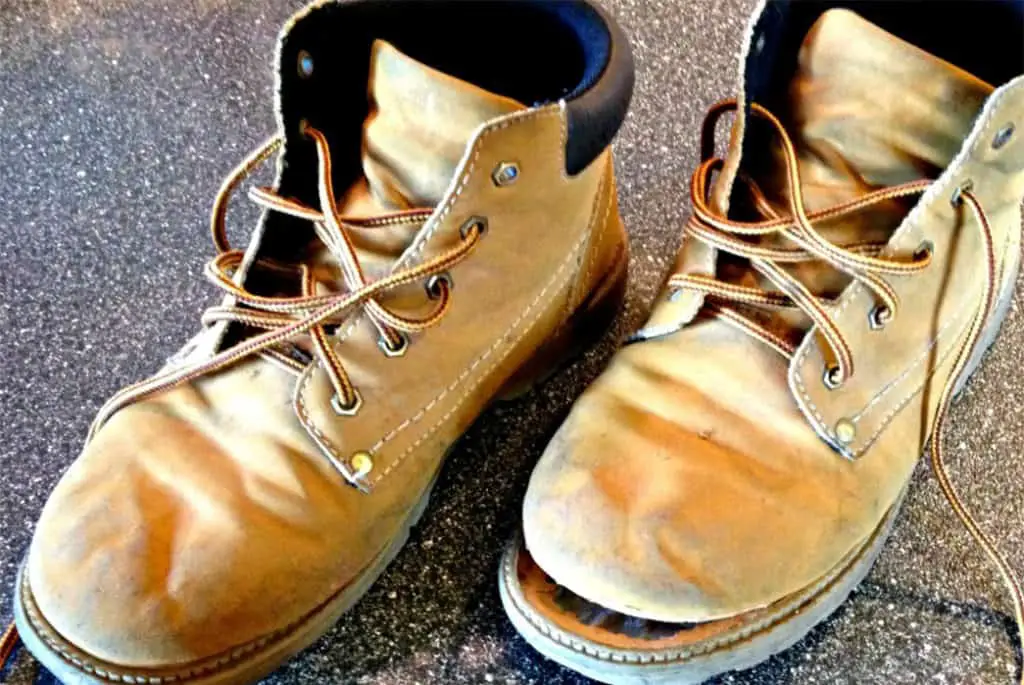
Now this is very easy to notice. Obviously if the soles are coming apart from your boots you will feel it and see it too. But, here instead of replacing the entire boot, you can go for a sole replacement as well.
6.) Cracks or holes on the boots:
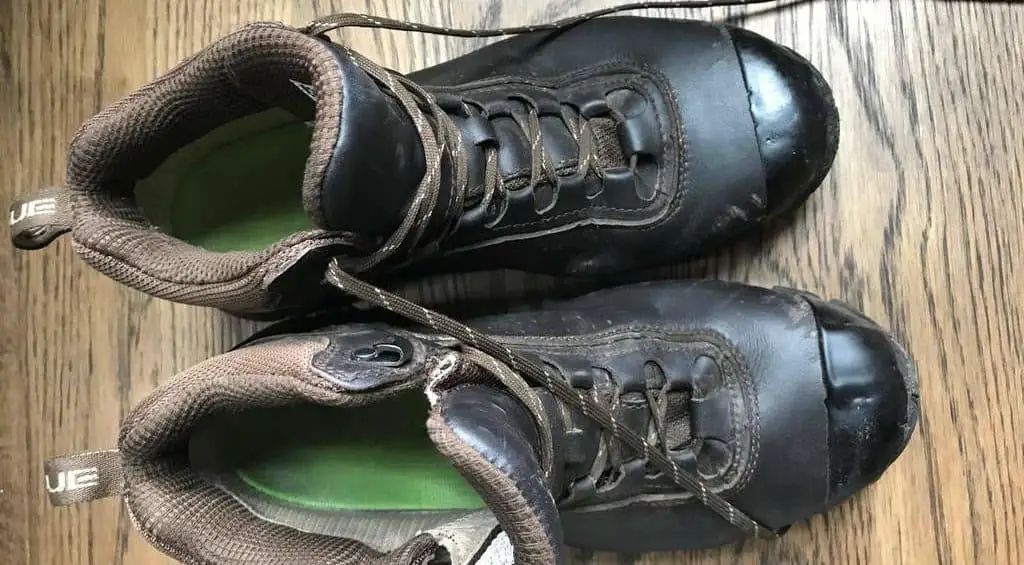
In the course of time, due to your work conditions or due to excessive wear, the material of the boots might get damaged and you might see holes or cracks in the soles or the uppers of the boots.
What is the time span to replace work boots?
Frankly speaking, there is no time bound as such to replace your work boots. You have to entirely decide it considering the signs given above.
But still, a good boot must last you as good as 6 long months.
But, if you tend to put pressure on it for very long hours a day and expose it to very harsh weather and work environments, it might last from 3-6 months.
How to make Boots Last Longer?
To your relief, there are certain easy tips to increase the longevity of your boots:
1.) Keep an alternative pair of boots:
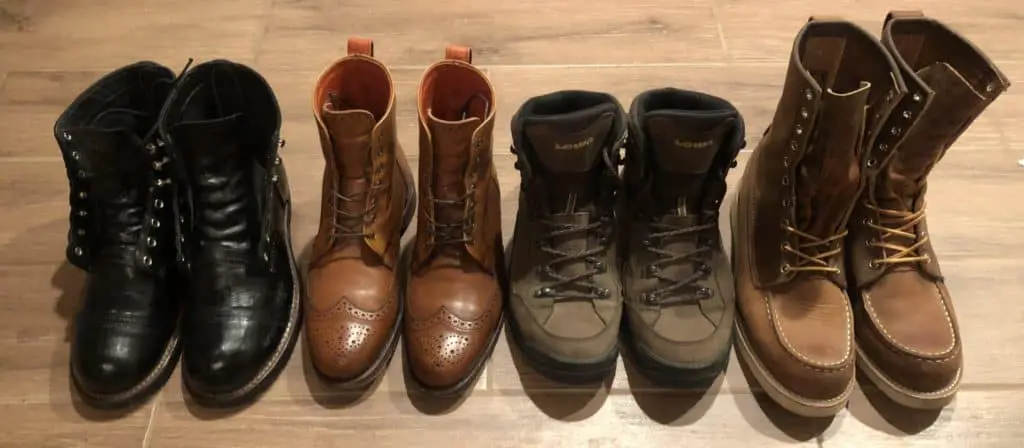
Suppose one pair gets wet today, if you have an alternative pair, you can wear it the next day to work and keep the wet pair of boots at home to sundry it completely.
Alternative two pairs of boots within weeks also makes both the boots to go through less stress and adverse effects of over usage.
2.) Keep another pair of boots for outside work:
You should not wear work boots outside work place. Neither work boots are designed for normal use, nor should you use them outside. This will save over exhaustion on the boots and you too will get a break from wearing the same boot again and again.
3.) Proper maintenance of the boots:
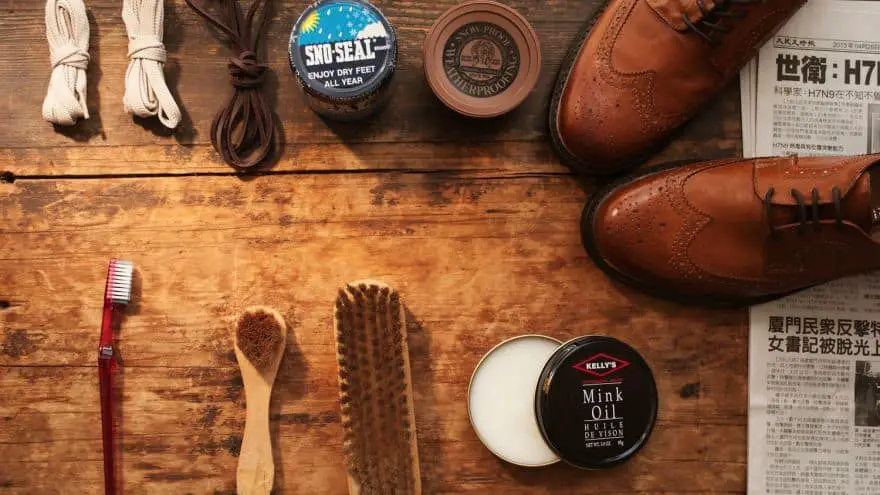
This is very important. Your health too tends to fall if you don’t care for it. So how can you expect your boots to serve you long without proper maintenance? Maintenance includes cleaning, dusting, polishing, conditioning and repairing of the worn out parts.
Which work boots last longer?
Boots from all the good brands like Thorogood, Timberland, Redwing, Carolina, Danner, Ariat boots will last you pretty long depending on how you maintain them and to what conditions you put them to.
By far the most loved boots in terms of durable area the Thorogood boots with Redwing boots ranking in the second position.
Does expensive boots last longer?
There is absolutely no guarantee that an expensive boot will last you longer than the cheaper ones. Check out the best budget boots guide.
But the point is that expensive boots are made of the best quality products and all the necessary features in them that make them more durable even with low maintenance.
What happens if you don’t replace boots?
If you do not replace your work boots when the signs indicate you that it’s time to do it, you will start facing certain problems like:
→ The sole might just come out while you are working
→ It might start cracking
→ The hardened leather will create blisters and pain in your feet
→ Water might sip in through the cracks and seams and make your feet wet
→ The dull color of the boots will make you look shabby
The boost won’t be able to offer you the protection you were wearing them for!
Before we say Good Bye:
Work boots cost you much and you won’t easily want to replace them, right?
And if you have gone through the article you know when to exactly replace them or it be done away by replacing any one of the parts.
My personal suggestion is to repair the holes and cracks at home.
And…
To polish and condition them very often as well.
That’s all folks for today!
See you guys in the next article.
Till then…
Stay safe and…
Keep walking.



